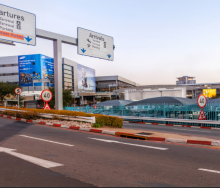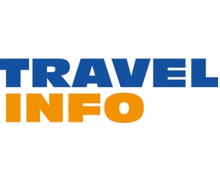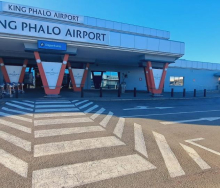Seasoned travel experts have learned how to spot a travel scam from a mile away. But it’s still worthwhile to refresh one’s memory on some of the red flags to avoid during the festive period.
“Anything that includes Accra or Dakar and London and client is willing to pay immediately on a credit card – run like hell,” said one ITC on Travelinfo’s Open Jaw Facebook group.
Another member of the group said dodgy email addresses were a dead giveaway of something amiss. “The other day I got an email and, instead of my name, it said ‘you’,” said the agent.
Random requests and ‘too-good-to-be-true’ bookings should also ring alarm bells. More than one consultant on Open Jaw agreed that fraudsters were quick to offer credit cards for payment without considering options or haggling over price. Fly-by-night travellers are keen to rush the agent, aren’t worried about typos in their emails and the name in the email doesn’t always match the name in the email address, Open Jaw’s members agreed.
Expect a surge in fraud
Club Travel’s ticketing and quality control departments were also on alert when Travel News spoke to Franchise Director, Jo Fraser. She said Club Travel’s entire ITC network had been warned to expect a surge in fraudulent booking requests since travel had opened up again and she identified more pitfalls for agents.
Fraser said Club Travel’s control teams usually checked for suspicious activity after-hours and, in the past three or four weeks, had noted a spate of Accra-Johannesburg bookings on a Friday for travel the next day. “With all the measures in place, we managed to avoid these tickets and after further investigation found that they were fraudulent.”
Club Travel’s top credit card fraud checks are:
1. Obtain your own authorisation code, preferably through the bank. Do not accept a code from a third party;
2. Do the usual credit card authentications and checks;
3. Watch out for Gmail and Yahoo email accounts;
4. Beware of people booking tickets today for travel in the next few days;
5. Beware when tickets are booked late in the afternoon or on a Saturday, Sunday or public holiday, outside of banking hours;
6. Beware when routings don’t touch South Africa;
7. Beware when the cardholder is not the traveller;
8. Beware of many transactions with different cards;
9. Beware of the same credit card number for multiple transactions; and
10. If you have any doubt, check and double-check. If you are still not sure, deny the sale.
A senior executive of a prominent travel agency in Port Elizabeth, who also reported an uptick in late, dodgy travel requests, agreed: “Fraud is on the increase, and has been since the beginning of COVID, preying on those who are desperate to issue a ticket.” The agent said email was the most common form of request for travel arrangements and flagged language and grammar mistakes as tell-tale signs that something was amiss.
“‘Dear Ma’am’ is a common one. The scamster usually guarantees a copy of a passport, which they produce. I have backtracked a passport number to a stolen one before and they just replaced the photo! The fraudsters always ask if you will accept a credit card that is not present. They may ask if they can do an electronic funds transfer, but I tell them that we no longer issue cash tickets post-COVID.”
This agent also flagged dodgy email accounts and fraudulent requests that were designed to look as if they came from a recognisable or reputable organisation, such as Doctors without Borders or IBM. “If you move the cursor over the email address, the IP route comes up and you can see that it is not official. It takes a few minutes to get on to Google or LinkedIn to work out names in an email or purported companies, and this often turns up something fishy!
“The bottom line is, always be sceptical and don’t ever accept a credit card for payment unless the card and the client are present, or you can get a copy of a valid ID and banking authority,” said the agent.
Asata weighs in
Otto de Vries, CEO of Asata, said consumers were also at risk at this time of year. “The festive season is upon us and we know from experience that this is the time that fraudsters emerge from the woodwork, targeting both consumers and agents. Over the years we have seen so many cases of travellers paying thousands to providers, sometimes online, often not South African-based, or other providers who promise travel experiences at prices that are simply unbelievable. Consumers need to realise that if it sounds too good to be true, it probably isn’t true. Travel agents should also be warning their customers that at this time of year, fraudsters are even more on the loose than usual.”














